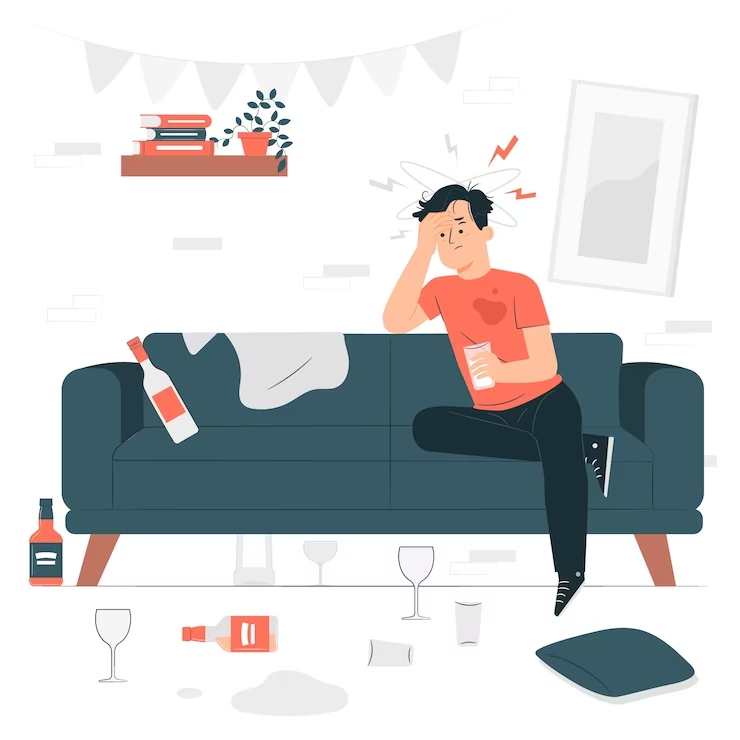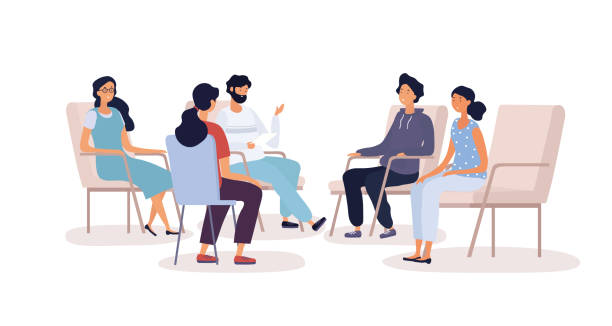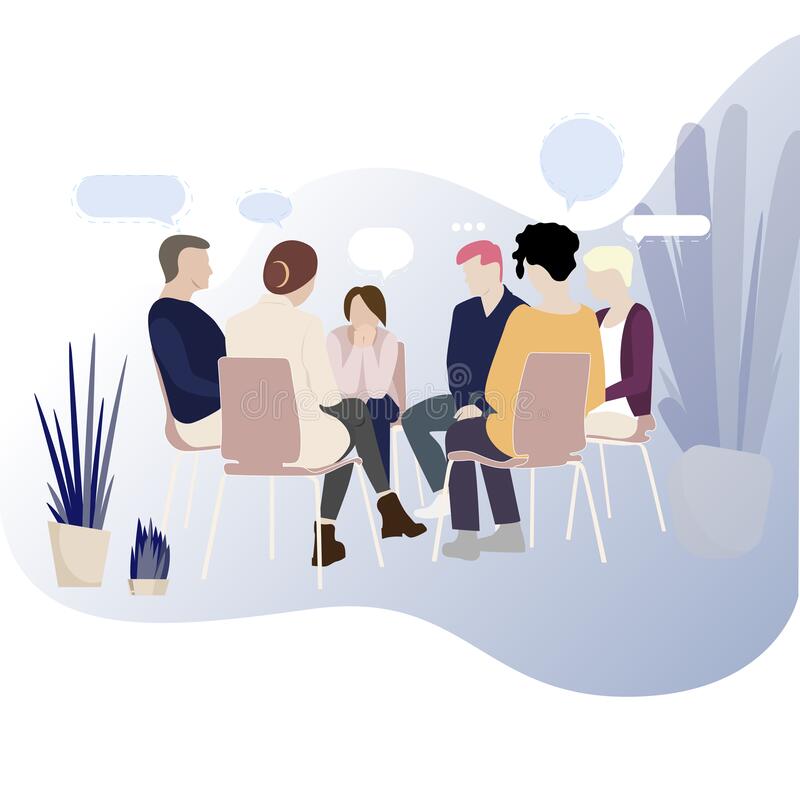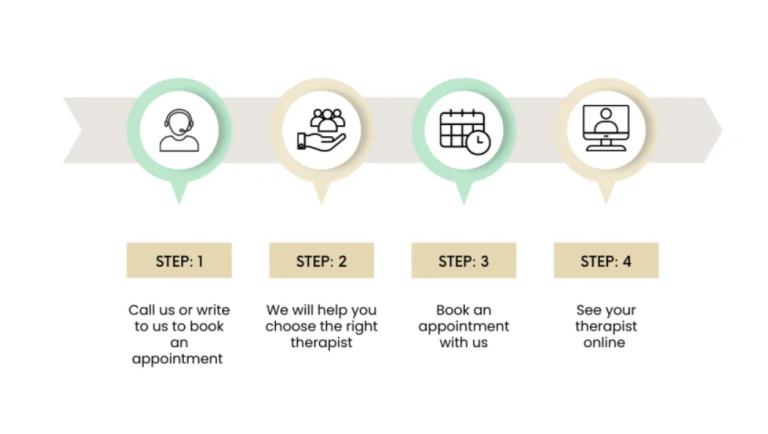
Therapy For Addiction Treatment
Therapy for Addiction Treatment offers a ray of hope for a tomorrow where you’re free from the chains of addiction, living a bright and happy future.
35000
Sessions
22+
YEARS EXPERIENCE
500000+
LIVES IMPACTED
Understanding The Meaning of Addiction
Addiction refers to a condition where you feel an urge to continue using a substance, or engage in a behaviour, even if it is harmful to your mental or physical well-being.
Many people have certain habits or tendencies they often rely on. For some, it could be their morning cup of tea or coffee, for others it could be feeling incomplete without getting in their daily exercise. These habits are often harmless, and do not impair daily functioning.
However, addictions go beyond these simple habits. You know that it is harmful for you, but you cannot help going back to those habits. They seem out of your control and your craving is so high that you cannot stay away.
But the good news is that there is hope. Seeking help for addiction through counseling makes recovery possible, helping you lead a happy, well-functioning life.
Types of Addiction
There are many different types of addiction, but they can be broadly categorised into two types:
- Substance addiction includes alcohol, smoking, or drug addiction.
- Behavioural Addiction includes shopping, internet, gaming, food, internet, gambling, or porn addictions.
Regardless of the type, struggling with addiction can feel lonely and isolating. Sometimes, people around you don’t understand what you’re going through and make judgments about your pain. This can make you feel ashamed and guilty. However, remember that your shame doesn’t define you. While it is an understandable and common reaction, it should’t stop you from getting the support you deserve.

Symptoms of Addiction
Identifying that you may be struggling with addiction can be difficult, as it can be difficult to see the severity of the storm when you are right in the middle of it. Nonetheless, knowing the signs can serve as a point of self-reflection and decision to take support to start your path to addiction recovery.
Here are a few questions for you to reflect on and consider:
- Do I use certain substances or engage in behaviours mor often than I want to?
- Do I choose this substance or activity over other areas of my life, like health, work, or relationships?
- Do I have find it difficult to stop or cut these tendencies down?
- Do I have to hide and be secretive about this?
- Do I have strong cravings for the substance or activity when I don’t use it?
- Has this caused problems in my personal, professional life, and my physical and mental health?
- Do I feel irritable, moody, and anxious?
- Do I engage in risky or impulsive behaviours when you are using substances or engaging in the activity?
Remember, these signs do not indicate failure. Experiencing one, or most of these signs do not reflect negatively on your character or personality. Instead, these “common” signs are here to remind you that you are not alone. Countless people around the world have experienced or are going through addiction. And, every individual struggling with addiction can overcome it with the right kind of professional help, like counseling.
Often managing addiction is less about the controlling the addictive behaviour. Instead it is more about developing a better relationship with yourself by understanding the workings of your mind and learning ways of rewiring your brain.

When to Seek Counseling for Treating Addiction
When it comes to taking counseling to manage addiction, the best time is right now. Here some signs that it might be time for you seek therapy to recover from addiction:
- You are finding it challenging to stop, bring down, or manage your use or activity. You start to feel like addiction has its hold over you.
- Your relationships, work, finances are beginning to take a hit because of the addiction.
- You feel guilty, ashamed, and isolated because of your addiction.
- You feel like it is time to make a change. You have noticed how addiction has had a toll on your well-being and you are ready to start your recovery journey.

Seek Counseling for Addiction
Counseling can be a great tool for you to manage and overcome your addiction; and lead a happy and balanced life.
We are here for you.
How Therapy for Addiction Recovery Helps
There are numerous benefits to consult an addictions counselor to help you recover from addiction. We have highlighted some of the most important ones below. Therapy can help you:
- Understand the factors causing addiction like trauma, unresolved emotional pain, and mental health issues
- Seek Professional guidance and support, and receive encouragement and a space for accountability on your journey
- Develop healthier, sustainable coping mechanisms to manage stress and uncomfortable emotions
- Overcome shame and re-build your confidence and self-esteem.
Understand Addiction Better: What Causes Addiction?
Addiction can be caused by many factors, think of them as the pieces of a puzzle: genetics, childhood experiences, brain chemistry, and your environment. It is caused by the unique way in which the pieces of your puzzle fit.
If you dig deep, you will find how addiction is a way to seek pleasure, and avoid discomfort- whether that discomfort comes from a distant past, present, or an imagined future. Addiction is not a personality flaw, it is just another coping mechanism you have taken to cope with a challenging situation in the past.
The thing is, that addiction once protected you from danger and pain. But, it chose to stick along, and quickly became your only way to feel better, even if it came at the cost of your well-being. Through therapy, you unlearn this fact, and pick up various healthy tools to cope with discomfort, and not succumb to pain and suffering.
If you are curious to know about more such factors, you can explore the following reasons:
Your State of Mind
Addiction can begin as a way to numb or soothe yourself of the discomfort you are feeling in your mind. For instance, having one or too many drinks can make the anxiety and stress go away. Others can also use substances to feel more energised and productive- like, using cocaine, or amphetamines when you’re feeling tired to deal with a stressful work environment. Thus, addiction can depend on how overwhelmed or exhausted you’re feeling in your mind.
Trauma
Experiencing past trauma, or having negative childhood experiences can increase your chances of having addiction. Childhood Trauma impairs the development of your nervous system, causing you to feel more numb or distressed than others. This may cause you to engage in certain activities or consume substances to feel okay or safe in your body.
Socio-Cultural Factors
Culture shapes how we view substances, sex, eating and so on. Some addictions may seem normal in some cultural settings and shameful in others. Family patterns, community and peer pressures, and even access to treatment can all be influenced by cultural norms.
Negative Emotions
Addiction can sometimes be a way to avoid negative emotions. Stress, anger, sadness, grief, hopelessness are heavy, negative emotions. Sometimes, it can be challenging to fully understand and experience these emotions, especially with a lack of support from others. Thus, addiction can be chosen as a way to minimize or avoid these uncomfortable feelings and create a false sense of ‘okay’ness.
Becoming Sober: Self-Help Tips To Recover From Addiction

From Shame to Action: Shame and Guilt are the companions of addiction. It causes your addiction to become more chronic, taking away your self esteem and confidence. Shame keeps you feeling like you are the problem which blinds you from possible, workable solutions. Therefore, the answer to shame is action. Learning more about addiction and getting on the path to recovery are ways you can take action to combat with the shame that comes from addiction.
Enroll in a 12 Step Program: Join support groups, group therapy for addictions, and 12 step programs like Narcotics Anonymous (NA,) Alcoholics Anonymous (AA,) Gamblers Anonymous (GA,) Sex Addicts Anonymous (SAA) to get started on your de-addiction journey. These widely popular, private groups where you can seek community support from others who are also struggling with addiction.
Meditation for Addiction: Meditation, especially Mindfulness Meditation can be a powerful tool to manage addiction. It manages stress, reduces cravings, improves self-awareness, and increases self-compassion which are essential for recovering.
You are not defined by your addiction. Addiction is a serious mental health condition that requires help and support, not isolation. Counseling or Therapy for Treating addiction offers a space to rewrite your narratives around addiction from what’s wrong with you, to what happened to you. Remember, every journey starts with a single step, and you have what it takes to take that step today.
How To Contact Us For Addiction Treatment

Meet Our Therapists & Counselors and Book an Appointment
Our therapists are all trained psychologists qualified in helping people work through their difficulties. We work with individuals across different populations. We use an eclectic range of psychotherapies from solution oriented to insight oriented to holistic meditative approaches, depending on the need and comfort of the clients.
"What Our Clients Say about Our Online Counseling Services"







